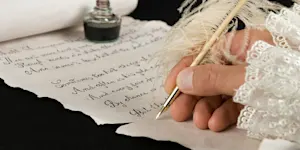What Makes This Word Tick
"Elicit" is a verb with an elegant ring to it. It refers to drawing out a reaction or response from someone—whether it's laughter at a joke or a gasp at a plot twist. A teacher might use clever questions to elicit thoughtful answers from students, much like playing a gentle game of intellectual tug-of-war.
If Elicit Were a Person…
If "elicit" were a person, it’d be a charming detective leading you to the answer to a mystery, gently coaxing clues out of a reluctant witness. Not one for dramatics or raised voices, Elicit would prefer to work in quiet nudges and knowing smiles, making the truth unfold naturally.
How This Word Has Changed Over Time
"Elicit" has remained quite consistent in meaning since its introduction to the English language in the mid-17th century. Originating from the Latin "elicere," which means "to draw out," this word has always been associated with coaxing out thoughts, feelings, or information rather than demanding them.
Old Sayings and Proverbs That Use Elicit
While there aren't ancient proverbs featuring the word directly, it slips perfectly into phrases like “You catch more flies with honey than with vinegar,” emphasizing how gentle persuasion often wins the day. It's all about drawing out positivity rather than forcing a response.
Surprising Facts About Elicit
Interestingly, "elicit" has a kinship with "explicit." Though the two words seem unrelated at first glance, both share the Latin root "lacer," meaning "to lure" or "draw forth." It's as if they're distant cousins at a family reunion—one drawing out, the other spelling out.
Out and About With This Word
In everyday settings, "elicit" shines in classrooms, therapy sessions, and interviews—anywhere the art of drawing out someone's thoughts or feelings is key. It’s the whisper of encouragement behind every insightful conversation and genuine connection.
Pop Culture Moments Where Elicit Was Used
Whether in Oscar-winning films or bestselling novels, scriptwriters and authors love "elicit" when crafting scenes of emotional revelation. Think of an intense courtroom drama where the lawyer elicits a confession right when the stakes are highest.
The Word in Literature
"Elicit" appears in literature often during moments of realization or confession. Novelists use it when characters draw truths from each other, like an intricate dance of dialogue. It's a staple in the toolkit of mystery writers and dramatists alike.
Moments in History with Elicit
In the historical landscape, "elicit" could describe moments like the subtle diplomacy that prevented conflict or the skilled negotiations of treaties where patience drew out the necessary concessions to build peace.
This Word Around the World
In other languages, "elicit" takes on local hues. For example, in Spanish, "provocar" can mean to bring out a response, while in French, "susciter" carries a similar burden. Regardless of the tongue, the essence of drawing forth reactions remains universal.
Where Does It Come From?
The roots of "elicit" wind back through Latin, with "elicere" translating to draw out, much like how one might lure a shy animal into view. It speaks of wisdom and patience, drawn from deep linguistic wells.
How People Misuse This Word
Sometimes people confuse "elicit" with "illicit," the latter meaning something illegal. While it might sound similar, confusing these can lead you into murky conversational waters!
Words It’s Often Confused With
Illicit: That's a naughty, illegal activity! Keep your "illicit" deeds away from your "elicited" responses.
Explicit: Clearly stated or shown, whereas "elicit" is about gently drawing out what's not immediately obvious.
Additional Synonyms and Antonyms
Synonyms: Evoke, draw out, extract, entice.
Antonyms: Suppress, hide, ignore, stifle.
Want to Try It Out in a Sentence?
The teacher used an intriguing experiment to elicit curiosity and questions from her students.
















